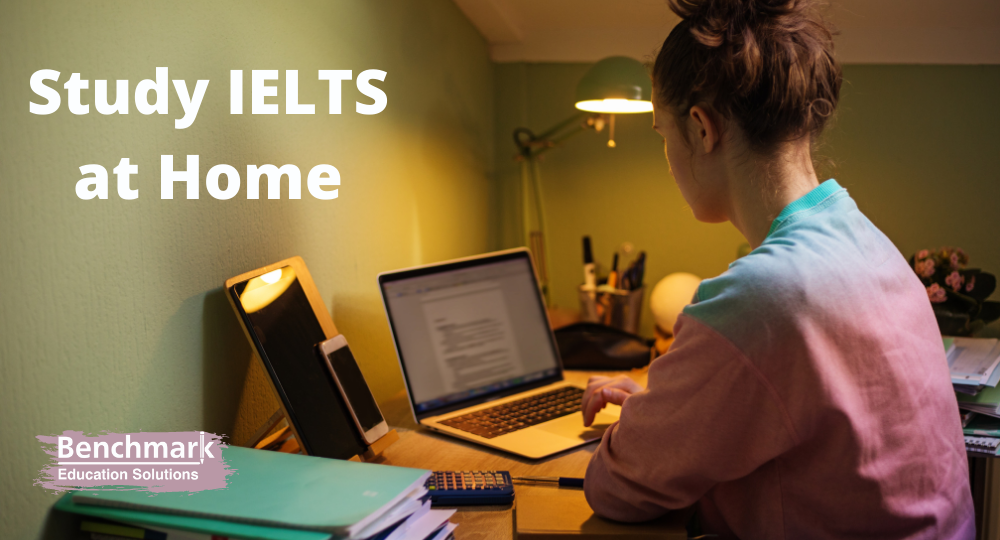
When it comes to training for IELTS, you have various choices in terms of teachers, classes, courses, and so on, but almost everyone will have to do part of their studying for IELTS at home. This can be a daunting challenge as they do not know how to study adequately. After all, IELTS can be a really difficult test and there are so many myths about it!
In this article, I want to share with you some tips and strategies to help you with your preparation for IELTS at home. The advice here should help everyone boost their scores no matter what their starting level.
1. Understand the test
First things first: Before you bother preparing for IELTS, you have to know about IELTS. It’s obvious, right? Well, actually most people don’t really start off in the right way. They have misconceptions about IELTS and it just seems like a big scary exam that no one could ever pass.
Before you completely freak out over this, consider studying the following from reliable sources:
- the structure of the test
- the grading system and its meanings
- common topics
- different types of IELTS
- details about exam day
By understanding these, you will be in a much better place to progress. This can be done really easily in an hour or two by looking at some trustworthy sources.
2. Find reliable materials
The internet is awash with free and paid IELTS courses, books, blogs, videos, and even picture lessons. However, can you trust all of it? Of course not!
You need to find materials that are reliable and then use these effectively. You can find out the reliability of these materials in various ways. First, ask yourself what the credentials are of the person who made this material. Are they a native speaker or do they have a high-level qualification? If you can’t even find out their name, you certainly cannot trust them.
Next, look and see how comprehensive the material is. If it is a YouTuber who just tells you to memorise a few words, obviously they are not to be trusted. If it is a social media profile that just posts silly memes, they are obviously not serious. If it is a flimsy IELTS ebook with little substance, it’s better to switch it for a more reputable one.
You can look at well-respected sources like the BBC or the British Council, who employ experts to create their materials. Then, use these daily to boost your skills by following their lessons.
3. Adhere to a regular schedule
I just mentioned studying IELTS daily and this is a really important thing. You do not need to spend six or twelve hours per day studying for IELTS at home, but having a regular schedule is very important. Even ten minutes or a half hour is better than nothing.
By studying IELTS on a regular basis, you will find that information sticks in your head more. This because you will learn something one day and then go back to it again in the next days. The repetition of this IELTS material will make it easier for it to go from your short-term memory to your long-term memory.
Having this sort of discipline is also really important for IELTS success because it can encourage you to keep going through the hard times. Learning English (or any other language) is very difficult and you will naturally encounter various problems that cause a lack of motivation. However, by continually studying a little bit each day, you will be able to push through those problems and keep going until you achieve your goal.
4. Study from a wide range of materials
IELTS candidates tend to get fixated upon the same sorts of materials: official exam papers, sample essays, recent cue cards, vocabulary lists, etc. Whilst these can be helpful, they are quite limited in how they can help you. It is important instead to study from a wide range of materials.
By this, I mean you should not just fixate upon IELTS exam papers or sample essays so that you can dominate the IELTS exam. You should instead do other things: watch TV shows, listen to podcasts, play grammar games, read articles, try shadowing, boost your reading speed, and so on.
The main point in this approach is to improve your overall English skills. Remember that IELTS is not just an exam. It is a test of your English abilities. If a native speaker of English sat the IELTS test, he or she would certainly get a very high score! This is because they speak English already. Unfortunately, too many IELTS students forget this simple fact and focus too much on exam strategies.
5. Learn from context
Related to the previous point, you should aim to learn language from context. What I mean by this is don’t just study long lists of vocabulary or memorise grammatical rules. Instead, aim to learn language from listening or reading texts.
Of course, this is impossible in the beginning, but if your English level is good enough to read this (ie what I am typing right now), then you are certainly capable of finding new language from context.
Say you are reading a BBC article about drilling in Siberia. You come upon the phrase “oil refinery.” Perhaps you have never read it before. Well, can you guess its meaning from context? Try looking it up in a dictionary to see… Then, Google it and find other uses. This will help imprint the meaning on your brain as well as show you the various ways it can correctly be used in context.
Learning language in this way is far better than through traditional modes because it allows you to actually remember and use language naturally, avoiding the common mistakes that others face.
Conclusion
There are lots of ways to prepare for IELTS at home but the above 5 tips can help you learn effectively. Try going through each one of these and applying them to your current IELTS study schedule. I’m sure you’ll find it helpful! This is aimed at giving you a more holistic approach to learning and also to help you avoid the very common errors that hold people back from reaching their potential. By following this advice, you can avoid those pitfalls and reach your goal quickly and reliably.


Vey good in easly by